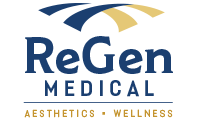Biote Alternative
Introduction:
Maintaining hormonal balance is vital for overall well-being, influencing numerous aspects of our health, from energy levels to mood stability. While Biote therapy has gained popularity as an approach to hormone optimization, exploring alternative options is crucial to make informed decisions about our health. This article aims to shed light on the topic, providing an in-depth understanding of Biote therapy, its limitations, and alternative approaches to hormone optimization.
Traditional Hormone Replacement Therapies:
Traditional hormone replacement therapies have long been utilized to address hormonal imbalances. These methods include oral hormone therapy, transdermal patches and gels, as well as injections and implants. While these approaches offer convenience, they come with potential side effects and limited customization options. Understanding the pros and cons of traditional methods is essential when considering hormone optimization.
Understanding Biote Therapy:
Biote therapy is a unique approach to hormone optimization that involves the use of bioidentical hormones delivered through a pellet delivery system. Bioidentical hormones have a molecular structure identical to those naturally produced by the body. The pellet delivery system provides a steady release of hormones, maintaining consistent levels in the bloodstream. This method offers benefits such as extended duration of action and personalized dosages tailored to individual needs. Patient testimonials often highlight the positive impact of Biote therapy on energy levels, mood stability, sleep quality, and overall well-being.
The Limitations of Biote Therapy:
While Biote therapy can be effective, it is essential to be aware of its limitations. Potential side effects may include infection or extrusion at the implant site and fluctuations in hormone levels. Some individuals may experience discomfort or bruising at the insertion site, which typically resolves within a short period. Furthermore, Biote therapy may not be suitable for individuals with allergies to hormone compounds or specific medical conditions or medications. Cost considerations and insurance coverage are also factors that need to be taken into account.
Alternative Approaches to Hormone Optimization:
Fortunately, several alternative approaches to hormone optimization are available. Plant-based hormone therapies utilize natural compounds found in plants, such as phytoestrogens and herbal supplements, to support hormonal balance. Compounded hormone therapies offer customized formulations and tailored dosage options to meet individual needs. Lifestyle modifications, including dietary changes, exercise, stress management, and sleep optimization, play a significant role in promoting hormonal health.
Integrative Medicine and Functional Medicine Approaches:
Integrative medicine and functional medicine provide holistic perspectives on hormonal health. These approaches aim to identify underlying causes of hormonal imbalances and develop individualized treatment plans. By considering various factors, such as nutrition, gut health, stress levels, and environmental influences, healthcare providers can offer targeted supplementation, nutritional guidance, and lifestyle adjustments.
Consultation and Decision-making Process:
When considering hormone optimization options, it is crucial to consult with a qualified healthcare provider. This ensures accurate evaluation of individual needs, symptoms, and preferences. Asking the right questions during consultations helps gather essential information to make informed decisions. Comparing Biote therapy with alternative options allows individuals to weigh the benefits, potential risks, and long-term sustainability.
Personalized Treatment for Hormonal Health:
Recognizing that each individual’s hormonal needs are unique, personalized treatment approaches are essential. Evaluating individual symptoms, medical history, and preferences allows healthcare providers to tailor hormone optimization strategies accordingly. Regular monitoring and adjustments ensure optimal results and long-term well-being.
Safety and Long-Term Considerations:
Safety and long-term management are crucial aspects of hormone optimization. Regular monitoring and follow-up appointments enable healthcare providers to address potential risks, side effects, and make necessary adjustments to treatment plans. Open communication between patients and providers ensures ongoing safety and effectiveness.
The Future of Hormone Optimization:
Advancements in research and technology continue to shape the future of hormone optimization. Emerging alternatives and innovations, coupled with holistic approaches, offer promising avenues for improving well-being. By staying informed and open to new developments, individuals can actively participate in their hormonal health journey.
Conclusion: Empowering Your Hormonal Health Journey:
In conclusion, while Biote therapy is a popular choice for hormone optimization, it is essential to explore alternative approaches to make informed decisions about our health. Traditional hormone replacement therapies, alternative options like plant-based and compounded hormone therapies, lifestyle modifications, and integrative medicine all contribute to hormonal balance. Consulting with qualified healthcare providers, weighing the pros and cons, and personalizing treatment plans empower individuals on their unique hormonal health journey. By prioritizing comprehensive care, we can optimize our well-being and lead fulfilling lives.
